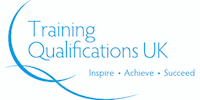
Counselling Skills Course
Level 7 Diploma in Counselling skills, 100% Success, Endorsed by TQUK, Quiz based Exams.
Inspire London College Ltd
Summary
- Certificate of completion - £50
- Certificate of completion - £75
- Exam(s) / assessment(s) is included in price
- Tutor is available to students
Add to basket or enquire
Overview
Level 7 Diploma in Counselling Skills l Endorsed by TQUK l 130 Credits l Quiz-based assessment (MCQs)
A Counselling diploma is developed for professional development and comes under easy-to-learn material for level 7. TQUK Endorsed counselling skills diploma level 7 provides learners with 130 credit hours. the candidates from counselling level 4 or counselling level 3 courses can also take this counselling level 7 course.
Counselling comes under talking therapies. This Level 7 Counselling skills Diploma starts with unit one, Adult Learning – Physical Skills. This unit of the Counselling skills Diploma revolves around bloom’s taxonomy. Counselling skills Diploma cognitive learning domain will boost your mental skills. The counselling skills course’s psycho-motor domain will help you to evolve your physical or manual skills. If you are seeking Level 2 Certificate in Counselling Skills (RQF) or are already enrolled for a Level 2 Certificate in Counselling Skills (RQF), then this Level 7 Counselling diploma will help you achieve that qualification in an easy way.
The second unit of the Counselling skills Diploma focuses on improving the learner’s mental skills. It helps you to build the Counselling skills needed to understand your subordinates better. The counselling skills Diploma is designed in such a way that it teaches you via real-life examples how to incorporate your counselling skills to understand the mental capability of your subordinates and then apply those counselling skills to ease them or to increase productivity counselling them.
The counselling skills Diploma deeply discusses Coaching and mentoring as this is the critical skill you need to have in your counselling skills which will build your rapport with your subordinates. The counselling skills course's coaching and the mentoring unit will help you establish a better workplace. This help in making the trustable environment as the counselling skills course is designed for getting rid of obstacles and better understanding the difference between coaching and mentoring. The counselling skills course identifies how coaching is focused on the performance of an individual and how mentoring is a holistic approach to revealing an individual’s capabilities by using counselling skills. If you are seeking, Counselling Level 4 course, Counselling Level 3 course, or Counselling Level 2 course, then you can take this Counselling Level 7 Course because level 3 counselling or level 4 counselling is focused towards offering you basic counselling skills, but this level 7 Counselling course will offer you higher counselling knowledge of psychological counselling and child counselling.
The appreciative inquiry unit of the counselling skills course enables the learner to think positively, as positivity is key to counselling skills. Counselling skills will help learners to know subordinates' strengths and then make them able to think positively, as this is the sole purpose of a counselling skills course to counsel others.
- Utilizing Counselling skills to create positive imagery
- Recognize positive attributes in people by Counselling
The next phase, the Counselling skills Diploma, targets conducting employee reviews. This includes pay for performance and gauging employee happiness. Counselling skills will help learners understand the manager's mistakes while conducting the annual employee reviews. Skills you need to understand how to gauge an employee’s happiness. You could better counsel when you have these counselling skills.
A counselling skills Diploma teaches you to deal with conflicts in a systematized way so that you can better manage the conflicts. The counselling skills course equips you to manage your anger better and resolve the conflict.
The Counselling Skills Diploma targets problem-solving in a way that enables you to identify the problem, determine the course of action and then select the best suitable way of dealing with that particular problem.
The counselling skills course teaches you to manage your anger, so you do not disturb the workflow. The anger management unit of the Counselling skills Diploma includes the anger cycle. De-escalations is also discussed in this unit of the counselling skills course.
Time prioritization and procrastination are the focused area of the Counselling course in its Attention management unit. The counselling skills attention management unit also discusses the management of tasks.
Though office politics is categorized as negative, it is much more convincing if done correctly. The counselling skills course will help learners understand what office politics is and how to better utilize it for networking and support.
Achievement
Certificates
Certificate of completion
Digital certificate - £50
Upon successfully passing the course Final Test, Learner needs to pay for CPD Accredited Certificate of Completion either in PDF format or Hardcopy from ILC.
Certificate of completion
Hard copy certificate - £75
Upon successfully passing the course Final Test, Learner needs to pay for CPD Accredited Certificate of Completion either in PDF format or Hardcopy from ILC.
CPD
Description
Negative things, when done right, can bring positive results. counselling skills teach you how to use constructive criticism to increase productivity in the workplace. This will enable the learner to know some excellent follow-up techniques, adding value to counselling skills. Coach, mentor, guide, support, model and many more all are ringing bell to create attention towards counselling and guiding. counselling is all about offering guidance to and wisdom to learners where it is needed.
Counselling Skills is comprised of 13 units each carrying the 130 endorsed credits.
Unit 1 - Adult Learning – Physical Skills
- Understand Bloom’s Taxonomy
- Explain the psycho-motor domain
- Explore the different psycho-motor taxonomies
- Explain ways to implement training in the psycho-motor domain
- Identify psycho-motor activities
Unit 2 - Adult Learning – Mental Skills
- Understand Bloom’s Taxonomy
- Explain the cognitive domain
- Explore the two cognitive domains
- Explain types of knowledge
- Identify training in the cognitive domain
Unit 3 - Coaching and Mentoring
- Define coaching, mentoring and the GROW model.
- Identify and set appropriate goals using the SMART technique of goal setting.
- Identify the steps necessary in defining the current state or reality of your employee’s situation.
- Identify the steps needed in defining options for your employee and turn them into a preliminary plan.
Unit 4 - Appreciative Inquiry
- Know the meaning of appreciative inquiry
- Think in positive terms and avoid thinking negatively
- Encourage others to think positively
- Recognize positive attributes in people
- Create positive imagery
- Manage and guide employees in a positive environment
Unit 5 - Conducting Employee Review
- Understand the process of conducting an annual review.
- Determine the categories for an annual review.
- Know the mistakes managers make during an annual review.
- Understand the concept of pay for performance.
- Know how to tie employee compensation to firm-wide returns.
- Know the value of employee communication.
- Gauge employees’ happiness.
Unit 6 - Constructive Criticism
- Understand when feedback should take place
- Learn how to prepare and plan to deliver constructive criticism
- Determine the appropriate atmosphere in which it should take place
- Identify the proper steps to be taken during the session
- Know how emotions and certain actions can negatively impact the effects of the session
Unit 7 - Conflict Resolution
- Understand what conflict and conflict resolution mean
- Understand all six phases of the conflict resolution process
- Understand the five main styles of conflict resolution
- Be able to adapt the process for all types of conflicts
- Be able to break out parts of the process and use those tools to prevent conflict
- Be able to use basic communication tools, such as the agreement frame and open questions
- Be able to use basic anger and stress management techniques
Unit 8 - Problem Solving
- Understand problems and the creative problem solving process
- Identify types of information to gather and key questions to ask in problem solving
- Identify the importance of defining a problem correctly
- Identify and use four different problem definition tools
- Write concrete problem statements
- Use basic brainstorming tools to generate ideas for solutions
- Use idea generating tools, such as affinity diagrams, word chaining, the box method, the six thinking hats, and the blink method
Unit 9 - Anger Management
- Understand anger dynamics in terms of the anger cycle and the fight or flight theory.
- Know common anger myths and their factual refutations.
- Know the helpful and unhelpful ways of dealing with anger.
- Know techniques in controlling anger, particular reading anger warning signs, using coping thoughts, exercising relaxation techniques and blowing off steam.
- Understand the difference between objective and subjective language.
- Know tips in identifying the problem.
- Express a feeling or position using I-messages.
Unit 10 - Attention Management
- Define and understand attention management.
- Identify different types of attention.
- Create strategies for goals and SMART goals.
- Be familiar with methods that focus attention.
- Put an end to procrastination.
- Learn how to prioritize time.
Unit 11 - Office Politics
- Understand the purpose and benefits of office politics.
- Setting boundaries and ground rules for new employees.
- Learn to interact and influence among colleagues.
- Learn how to manage various personality types in the office.
- Determine how to gain support and effectively network.
- Recognize how you are a part of a group and how you function.
Unit 12 - Communication Skills
- Understand what communication is
- Identify ways that communication can happen
- Identify barriers to communication and how to overcome them
- Develop their non-verbal and par verbal communication skills
- Use the STAR method to speak on the spot
- Listen actively and effectively
- Ask good questions
- Use appreciative inquiry as a communication tool
- Adeptly converse and network with others
Unit 13 - Body Language
- Define body language.
- Understand the benefits and purpose of interpreting body language.
- Learn to interpret basic body language movements.
- Recognize common mistakes when interpreting body language.
- Understand your own body language and what you are communicating.
- Practice your body language skills.
Who is this course for?
Course Certification
Upon successfully passing the course, Learner needs to pay for CPD Accredited Certificate of Completion either in PDF format or Hard-copy From ILC or ENDORSED certificate from the Awarding Body TQUK (Hard-copy Only)
CPD Accredited Certificate of Completion (PDF format) = £50
CPD Accredited Certificate of Completion (Hardcopy) = £75 + postage charges £15 = £90
Endorsed Certificate from Awarding Body TQUK (Hardcopy Only) = £125 + postage charges £15
The course Counselling Skills is highly recommended for the leaders/managers/supervisor already working in reputable organisation to manage their subordinates effectively. The course is also of same importance of new entrants in the field of business management, especially at manager and/or supervisor positions.
Requirements
There are no precise requirements to enroll for Counselling Skills Diploma as no prior knowledge and experience of is required.
Students seeking to enroll for this Counselling course should meet the following requirements;
- Basic knowledge of English Language & Basic Computer Skills
- Be age 16 years or above
Career path
Successful completion of course Counselling Skills will equip you with the skills required for counselling your employees in all the management aspects. The course will enable to work as counselor for your staff and will help you to motivate them to achieve the organisational goals.
Questions and answers
Currently there are no Q&As for this course. Be the first to ask a question.
Reviews
Currently there are no reviews for this course. Be the first to leave a review.
Legal information
This course is advertised on reed.co.uk by the Course Provider, whose terms and conditions apply. Purchases are made directly from the Course Provider, and as such, content and materials are supplied by the Course Provider directly. Reed is acting as agent and not reseller in relation to this course. Reed's only responsibility is to facilitate your payment for the course. It is your responsibility to review and agree to the Course Provider's terms and conditions and satisfy yourself as to the suitability of the course you intend to purchase. Reed will not have any responsibility for the content of the course and/or associated materials.



